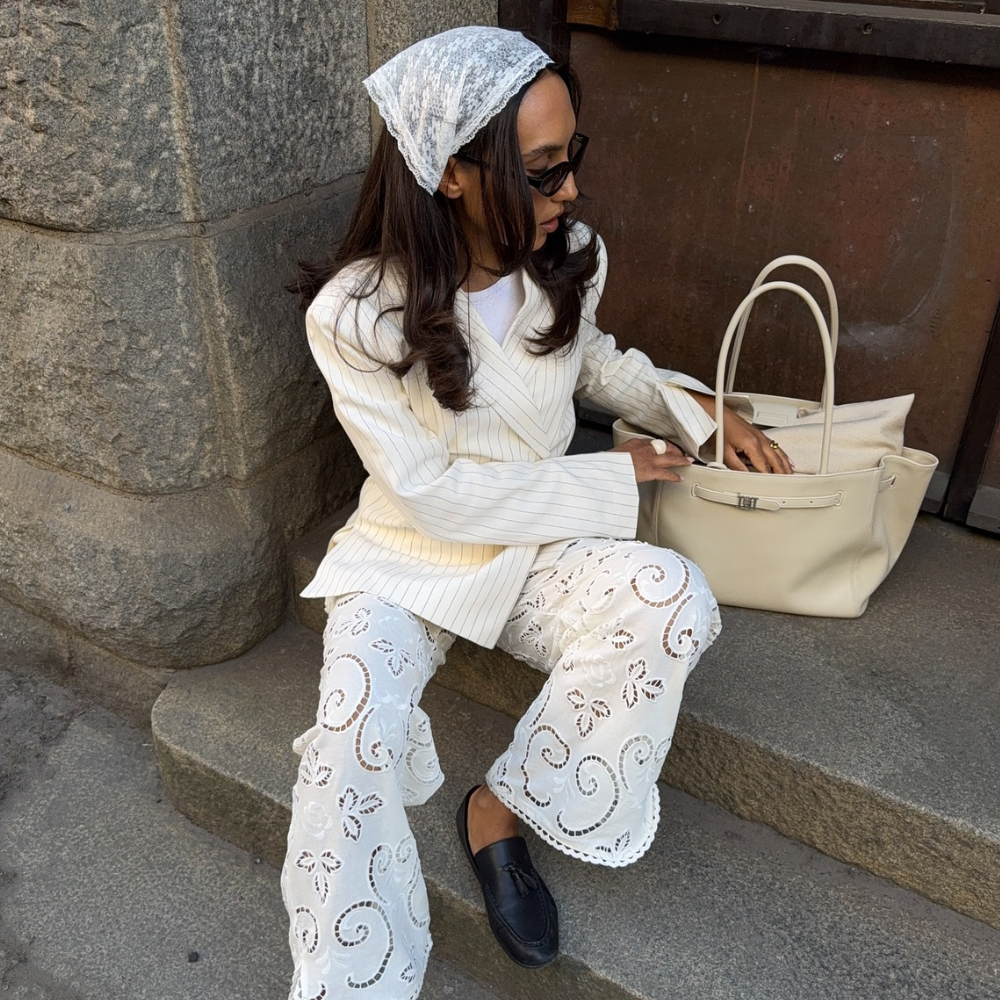Dermatologists Recommend These Products for Rosacea More Than Any Others

For most of my adult life, I actually thought my rosacea was stubborn acne. While hormonal acne was indeed present in the form of cystic spots, I was often battling small, angry papules and redness around my nose, chin and cheeks that even the most dedicated acne skincare routine wasn't helping with. It was only after a recent diagnosis with a dermatologist that I was surprised to learn I actually have rosacea (fun fact: it's often misdiagnosed as acne by patients themselves) and ever since, I've been determined to understand the skin condition better. As it turns out, my current skincare routine was probably making matters worse.
If you've landed here, you probably have a lot of questions around rosacea too. So, I've enlisted the help of Dr Emma Craythorne, dermatologist and founder of Klira, to explain what rosacea is, how to treat it and the best products to build into a skincare routine for rosacea.
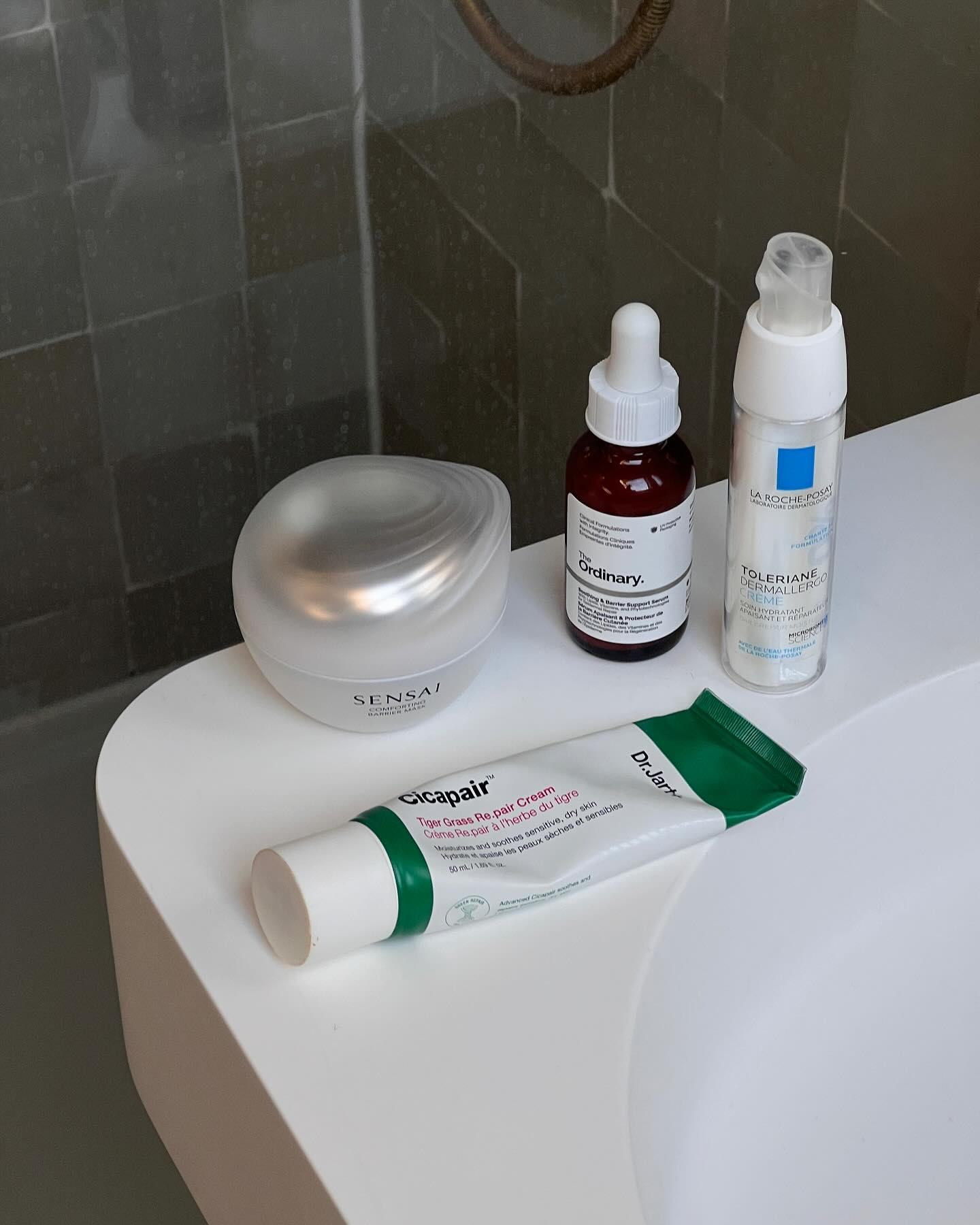
What Is Rosacea?
"Rosacea is a very common, chronic disorder that can present with a variety of skin and eye changes manifestations," says Dr Craythorne, who explains that it predominately affects the central part of the face and can present in the form of facial redness, papules (small, hard spots that don't come to a head), pustules (spots that have a pus-filled head) and flushing. It can also present in the form of flushing, visible veins and sometimes skin thickening.
"Although generally considered common, assessment of the true prevalence of rosacea is challenging because of the variable clinical manifestations, the existence of other skin disorders with overlapping features, and underdiagnosis is highly likely," explains Dr Craythorne. "Rosacea can present in many ways and often people will never visit a healthcare professional to get a diagnosis—something that is likely to increase in the Uk due to availability of healthcare for skin complaints."
Dr Craythorne says that rosacea primarily occurs in adults over the age of 30, and the disorder occurs more frequently in females than in males. "Occasionally [it] occurs in adolescents, a population in which rosacea is often mistaken for acne vulgaris. Rarely, rosacea occurs in children," she says.
Rosacea can occur in all skin tones, however, it is often trickier to spot the symptoms in those with deeper complexions, which can mask some of the more obvious symptoms such as redness, so it can often be under-diagnosed says Dr Craythorne. "Because it can appear quite differently, rosacea really covers a blanket term of conditions, [so] diagnosis and subsequent treatment can be different."
What Causes Rosacea?
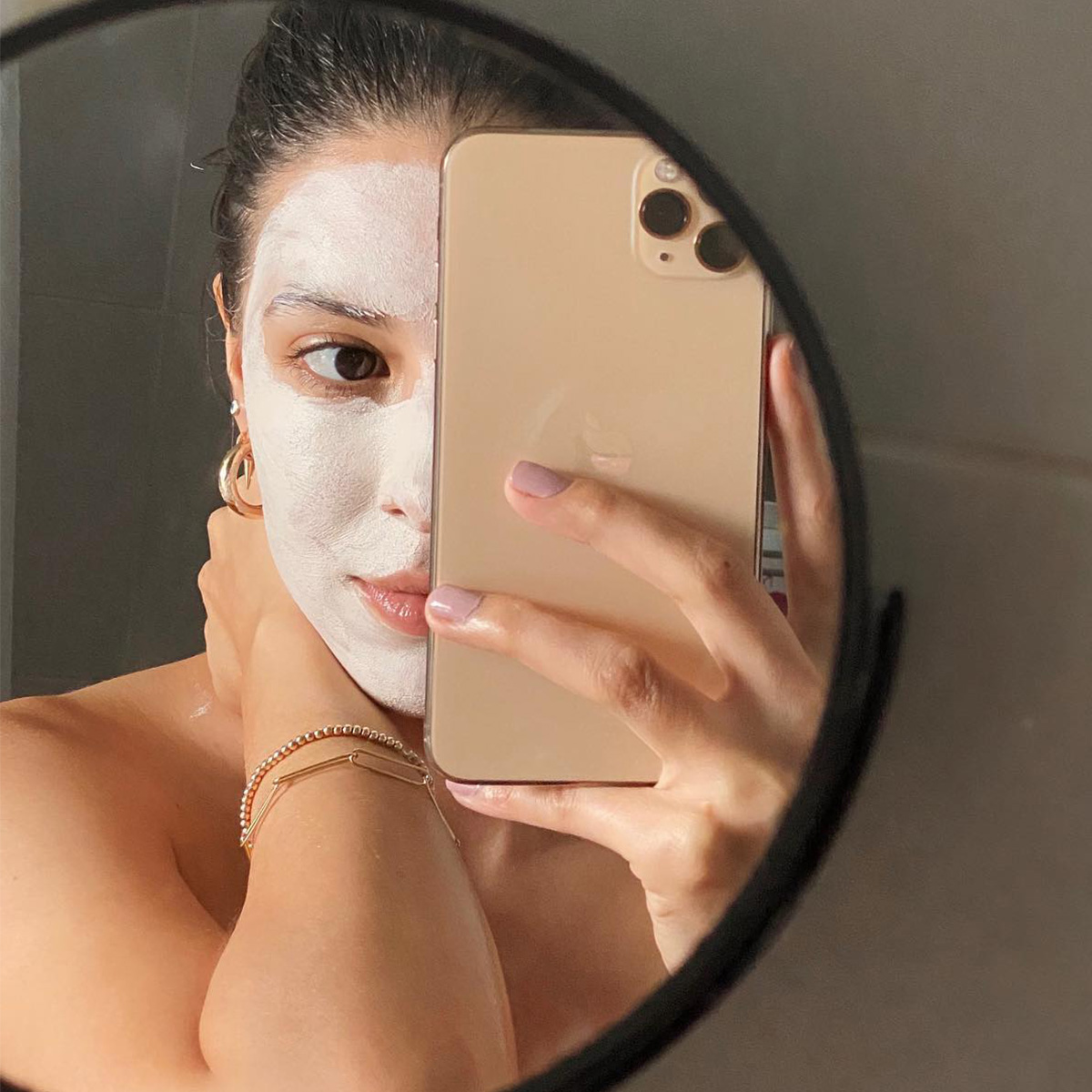
The exact cause of rosacea remains unclear, but several key factors contribute to its development. According to Dr Craythorne, genetics play a significant role, so if it runs in your family you may be more susceptible to rosacea too. Our immune systems also play a part in rosacea. Individuals with rosacea often have an overactive immune system, which overreacts to triggers like microorganisms, ultraviolet (UV) exposure, and physical or chemical trauma. This leads to chronic inflammation and blood vessel issues in the skin.
Another contributing factor is the presence of demodex mites, microscopic organisms that live in sebaceous (oil) glands. We all have these in our skin, however those with rosacea tend to have higher numbers of these mites, or they may have an abnormal immune response to them, which can exacerbate symptoms. Dr Craythorne explains that vascular hyperreactivity—where the blood vessels in the face are overly sensitive to environmental stimuli—is also a key characteristic of rosacea, leading to persistent redness and flushing. It's thought that extreme temperatures (and even some spices) can exacerbate rosacea symptoms.
Dr Craythorne recommends keeping a flare log to better understand your rosacea flares and possible triggers. "Really understand your skin," she says. "Think about your genetics and think about what your flares are. Keep a flare diary for three months to see if there are specific triggers—don’t decide on a whim what a trigger is as you will get it wrong—be patient and keep the diary for real results.
What Is the Medical Treatment for Rosacea?
There is no cure for rosacea, but medical treatments can significantly control the symptoms, as well as adopting a good skincare routine (more on that in a moment). But in terms of medical, prescription formulas, Dr. Craythorne advises starting with topical treatments that have proven efficacy. Some of the most effective treatments include:
Azelaic Acid (15%): Reduces inflammation and improves redness.
1% Ivermectin: Targets inflammation and can help reduce demodex mite levels.
Tretinoin (0.05%): This prescription form of vitamin A helps improve skin turnover and manage symptoms. Dr Craythorne recommends tretinoin as opposed to other retinoid forms such as retinol when treating rosacea.
Treatment often take several weeks to show significant results, so patience and consistency in your routine are really key. If topical treatments don’t provide enough relief after 12 weeks, oral medications like antibiotics or isotretinoin may be prescribed.
What Skincare Ingredients Can Help Rosacea?
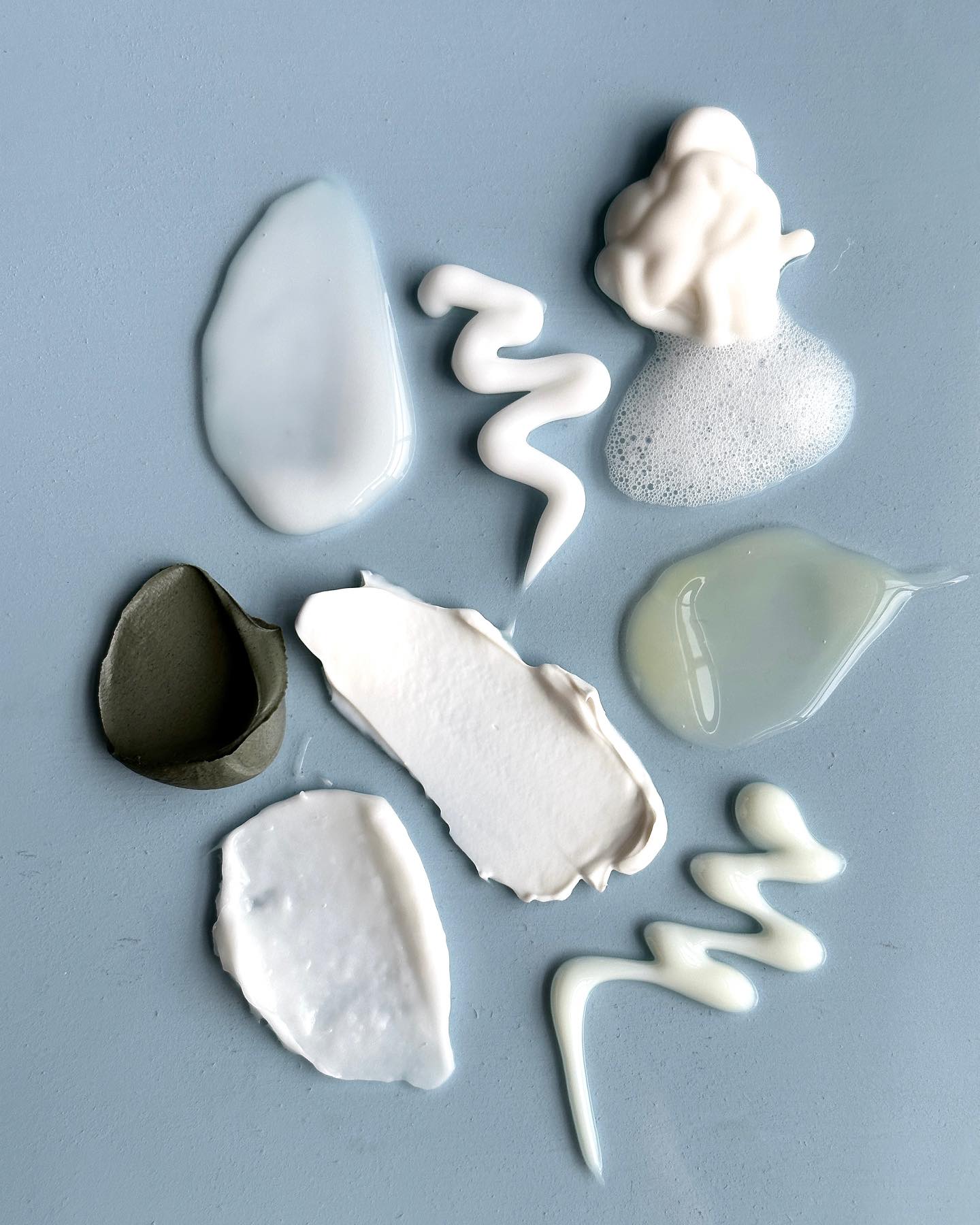
Thankfully, there is plenty of skincare we can access over the counter to treat rosacea if you don't have access to a dermatologist. Dr Craythorne recommends focusing on ingredients that are proven to treat rosacea. "Keep your skincare simple and targeted – only use products that have a good evidence base." she says. Good over the counter skincare ingredients include:
Azelaic Acid: This anti-inflammatory ingredient reduces redness and calms the skin.
Niacinamide: Known for its anti-inflammatory properties, niacinamide can help reduce redness and strengthen the skin barrier.
Ceramides: These are essential for maintaining a healthy skin barrier, which can prevent flare-ups.
Sunscreen: Daily broad-spectrum SPF is non-negotiable, as UV light is a common trigger for rosacea flares. You should also actively avoid sunbathing or the use of sunbeds too.
"Once you have the routine that works don’t deviate from it—the skin will ebb and flow in terms of how it behaves but don’t swap and change routines too quickly—real results to make a meaningful difference take time, at least eight weeks," says Dr Craythorne.
What Ingredients Should Be Avoided?
There are some ingredients you should steer clear of in your skincare routine. These include:
Fragrances: These can irritate the skin and exacerbate redness.
Alcohol-based products: These dry out the skin, making it more vulnerable to inflammation.
Harsh exfoliants or scrubs: These can physically damage the skin barrier and increase redness and sensitivity.
Foaming cleansers: These often contain surfactants that strip the skin of its natural oils, leading to irritation.
It's important to keep skincare simple and gentle, using products specifically formulated for sensitive skin.
How We Chose the Best Products for Rosacea
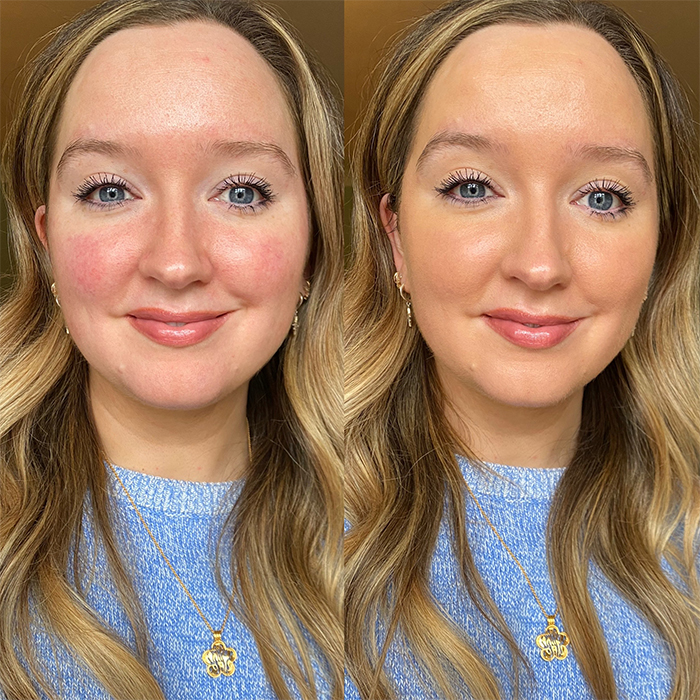
So, what are the expert-approved products for rosacea? We asked Dr Craythorne and makeup artist Rose Gallagher, who also happens to have been diagnosed with rosacea—two types, in fact—and uses her social platform as a place to share images of her real skin and product recommendations to others who are dealing with the same diagnosis. I've also included the products I've been recommended since being diagnosed with rosacea. Scroll ahead for our recommendations.
The Best Products for Rosacea
Best Makeup Remover for Rosacea:
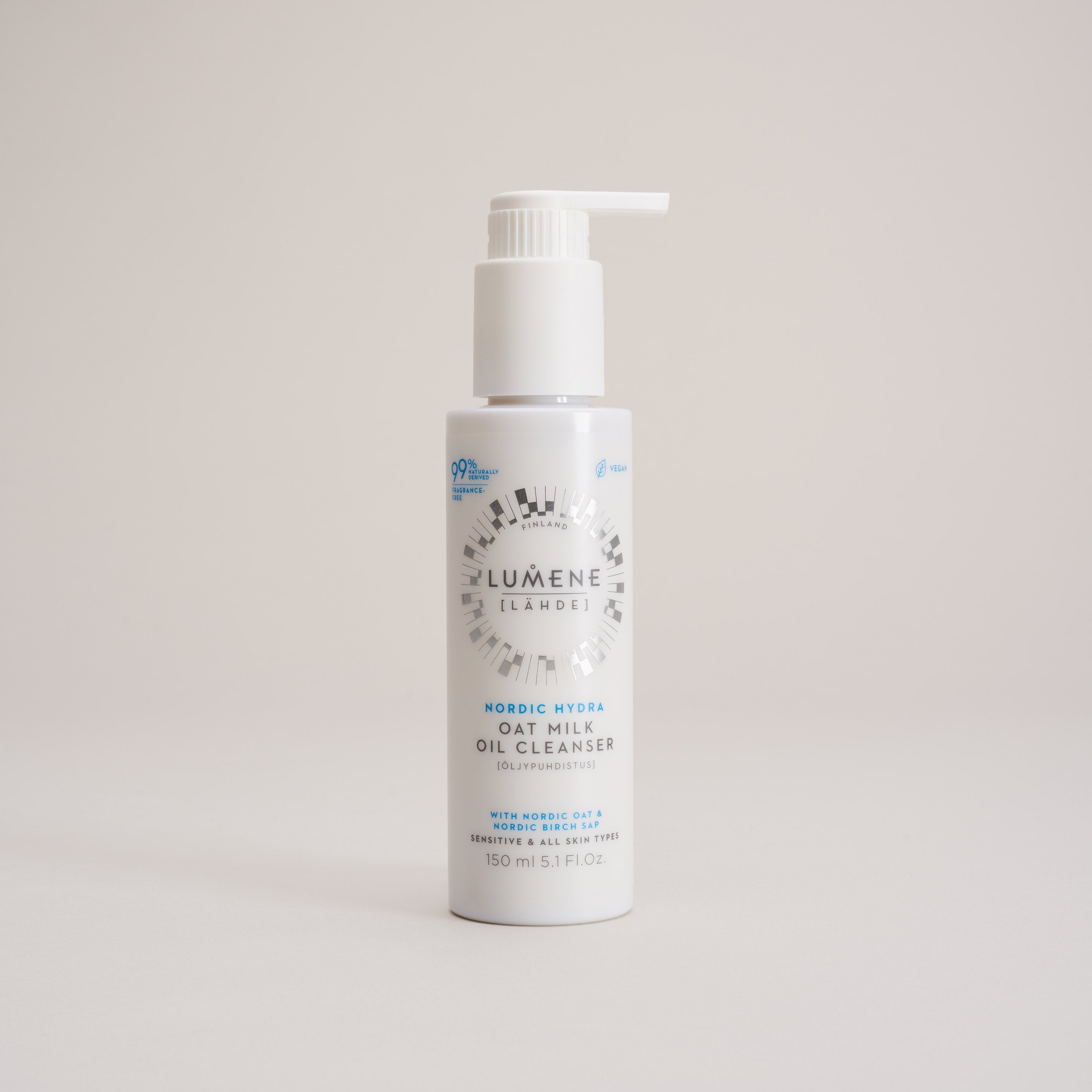
Pros: Fragrance-free, gentle on sensitive skin,
Cons: None
When it come to taking off your makeup, look for ultra-gentle cleansers that won't strip or irritate your skin. Lumene's fragrance-free formula is very gentle on sensitive skin and contains soothing oat milk in an oil-in-water cream emulsion, which gently removes foundation, eye makeup and SPF.
Customer review: "I have really sensitive skin with mild rosacea. My skin can be oily one minute and extra dry the next. This cleanser is so light and neutral that it settles both problems. I am really pleased that I have discovered Lumene and I highly recommend given their products a try!"
Best Affordable Cleanser for Rosacea:
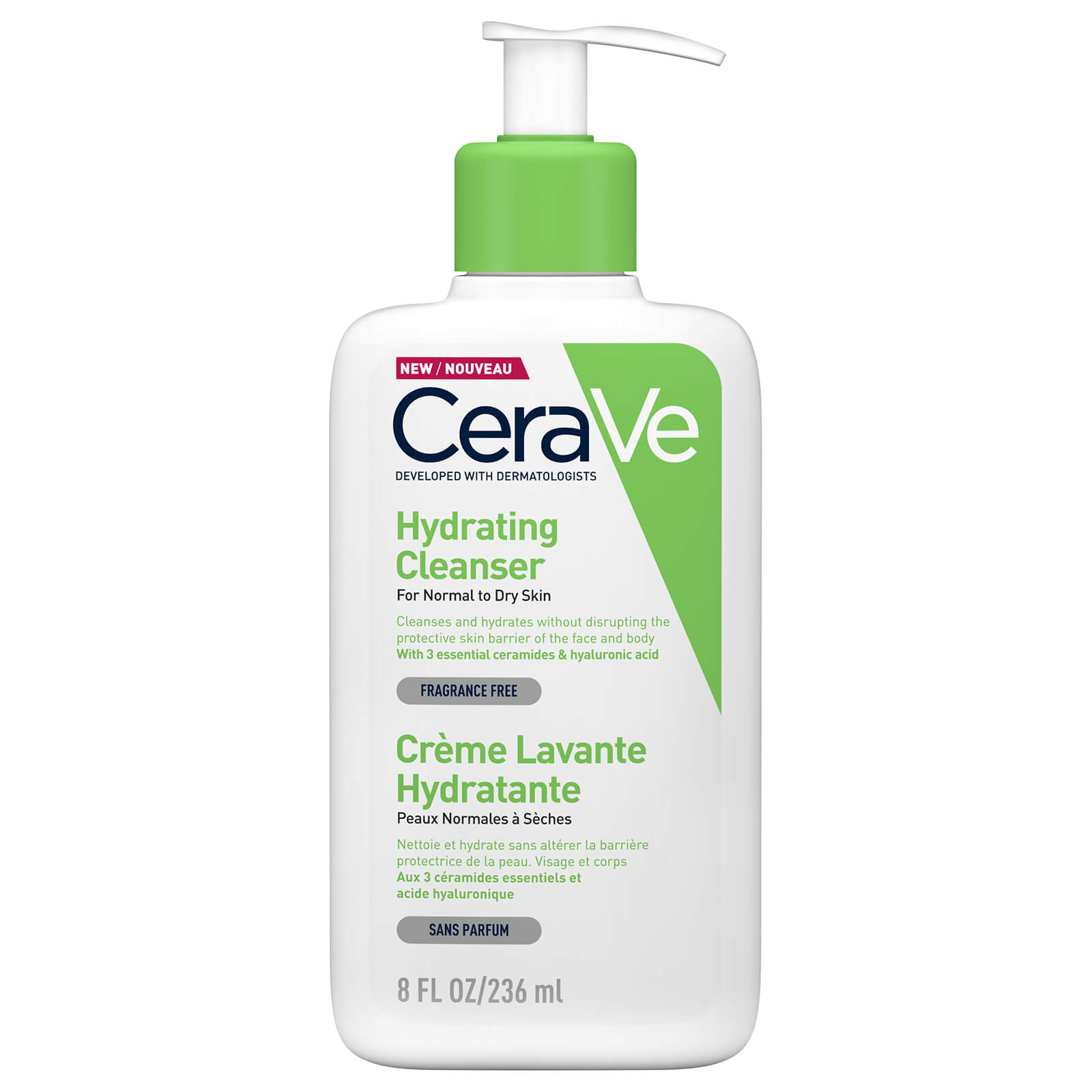
Pros: Affordable, gentle, hydrating fragrance-free
Cons: None
As a brand, CeraVe is reliable on all counts when you have redness or rosacea. Everything is competitively priced, fragrance-free and simple—just what the doctor ordered. This particular cleanser is gentle and removes all complexion makeup without being abrasive. We also like to use it as cleanser for the morning to soothe and hydrate before applying serums. A tiny bit goes a long way and the bottle is really large.
Customer review: "I use this as my morning cleanser and find it really nourishes my skin for the day ahead. Rinses off well and leaves skin feeling clean and comfortable."
Best Prescription Strength Treatment for Rosacea:
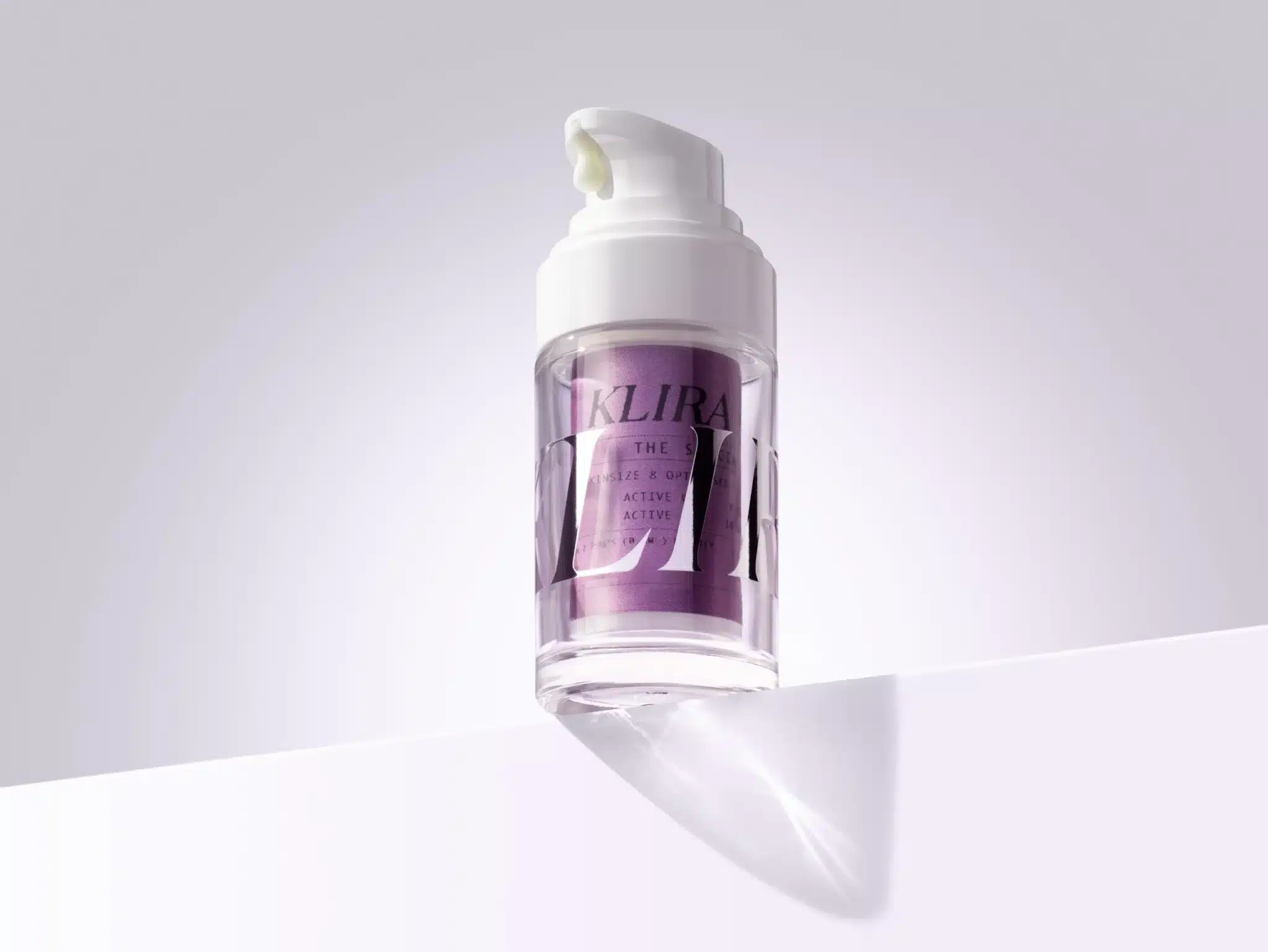
Pros: Prescription-strength formulas, bespoke treatment assessed by dermatologist monthly, replaces all other treatment in your evening routine
Cons: Subscription is required, can be expensive
Klira's prescription service is like having dermatologist-level treatment, but without the costly visit to a clinic. It offers prescription-strength formulations which are sent in the post once a dermatologist assesses photos of your skin and in-depth questionnaire. I've been testing this for the past month and have seen my rosacea improve significantly. Plus, your formula can be tweaked each month as your skin progresses, so you're always getting exactly what you need to see results. It is expensive, but it replaces everything in your night routine after cleansing, and the recommended products to use alongside are also very affordable. So, it can save you money in the long-run from wasting time on products that don't work for your skin.
Customer review: "Klira has made a great deal of difference to rosacea-sore, sensitive skin. I wanted to use a retinol but they have always been to harsh—not so with Klira. Klira also adapted my serum blend as my skin changed. So many complements about my complexion which looks clearer and healthier than ever. I strongly recommend Klira."
Best Serum for Rosacea:
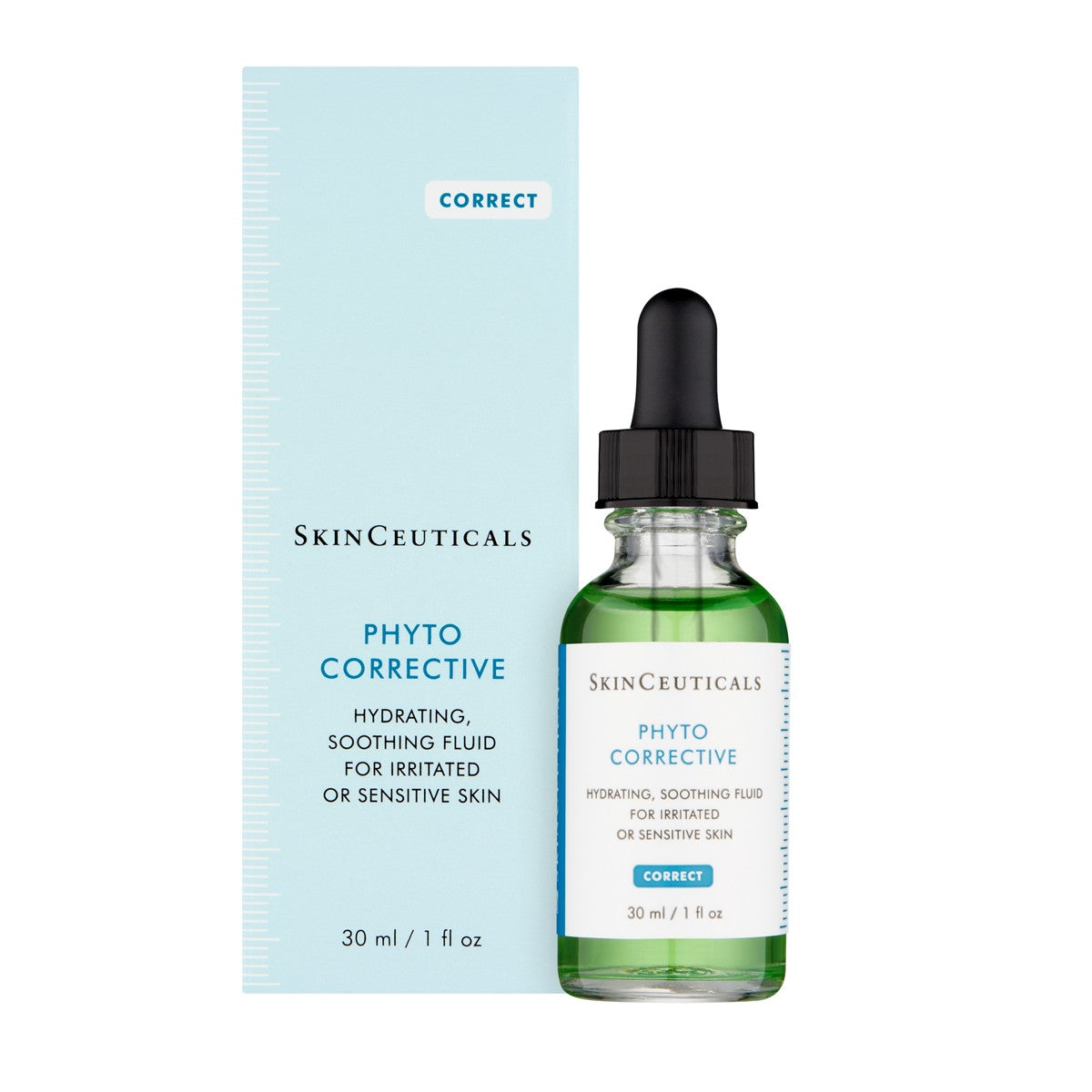
Pros: Soothing, ideal for rosacea and acne-prone skin, oil-free, lightweight
Cons: Expensive
A dermatologist recommended this serum to calm the redness, and I really rate the whole range as it really works. This lightweight serum is oil-free and actively works to soothe redness and inflammation fast. It's great for acne-prone skin types too, helping to bring down all types or irritation.
Customer review: "My fave - advised to use by my dermatologist for rosacea. Been using it for 3 months and can see such a great difference. Feels lovely on the skin too."
Best Moisturiser for Rosacea:
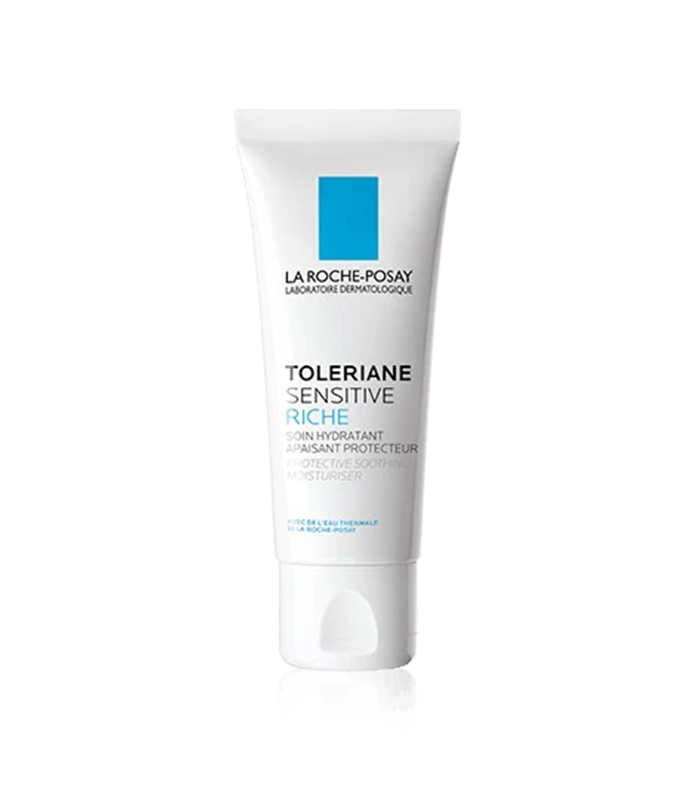
Pros: Affordable, dermatologist recommended, idea for sensitive skin
Cons: May be too heavy if you have oily skin
"Though there is a specific redness range at La Roche-Posay, my dermatologist (Emma Wedgeworth at the Sam Bunting clinic) recommended the Toleraine range for me, and I’ve seen remarkable results since using it," says Gallagher. "The texture of my skin is smoother and I have significantly fewer redness flare-ups now. My particular favourites are the Sensitive Rich Moisturising Cream for twice a day and the Toleriane Dermocleanse, which is super gentle but removes all of my eye and base makeup."
Customer review: "Just the right amount of thickness. No irritation and I have really sensitive skin. Will definitely buy again."
Best SPF for Rosacea:
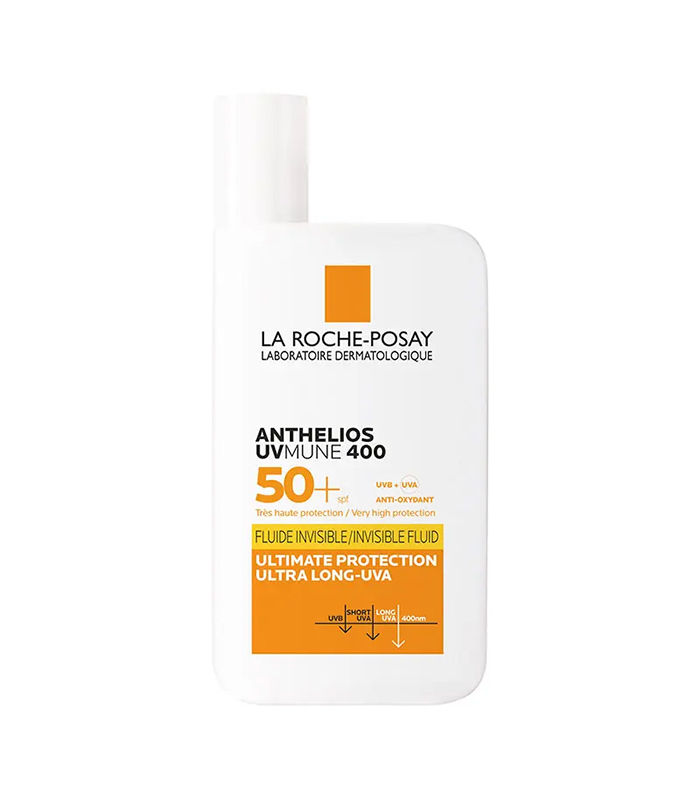
Pros: Lightweight, SPF 50, hypoallergenic
Cons: None
"We should all be using an SPF every single day, but in particular, those with rosy complexions need to do so because the sun will be all the more irritating," says Gallagher. "Anthelios is my SPF of choice because it's so thin in texture that you barely feel it on the skin and sits quietly under makeup. This is so tiny you can easily slip it into your bag to top up, too."
Customer review: "Love this product. Have used it for the last three years and was recommend it by a pharmacist after having problems with rosacea. My skin is now clear and have not had a flare up of rosacea in over two years."
Best Azelaic Acid Treatment for Rosacea:
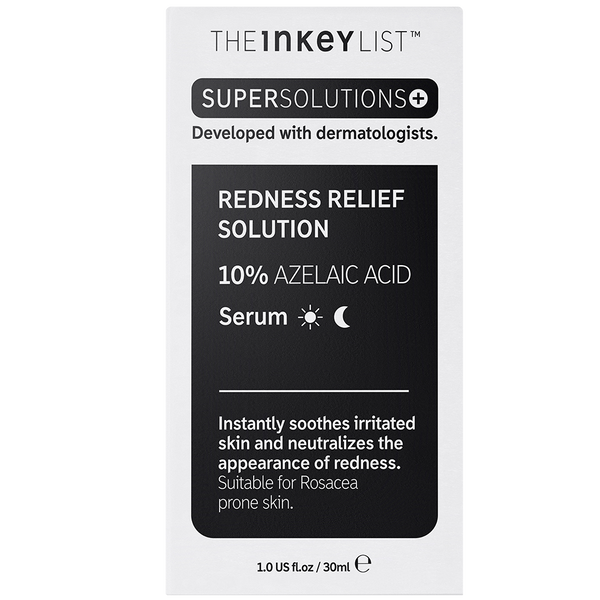
Pros: Reduces redness, green hue helps neutralise red areas, wears well underneath makeup
Cons: Could be more hydrating
"This treatment from The Inkey List will visibly smooth textured, red skin," says Gallagher. " Azelaic acid is the best ingredient for reducing the texture that can come with rosacea, and without a prescription for it, the highest percentage you can obtain is 10%. I’ve tried many high-street variations of this, but this one layers beautifully under makeup without pilling and is affordable. It also has a slight green hue to it which helps to neutralise the redness."
Customer review: "This serum has helped my rosacea and redness on my cheeks, it hasn’t irritated my sensitive skin although it can sometimes make my skin feel tight so I use a facial oil afterwards."
Best Colour-Correcting Product for Rosacea:
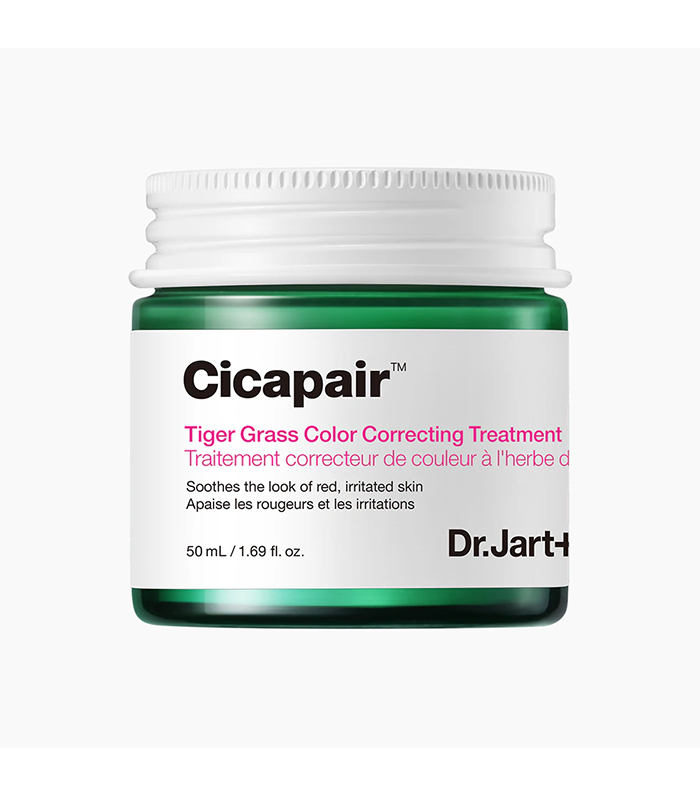
Pros: Multitasking colour corrector and moisturiser, colour corrects redness, offers light coverage on fair skin tones
Cons: Colour can look ashy on medium and deep skin tones
"A TikTok-viral sensation that I am glad I was converted to, Cicapair from Dr. Jart+ is a fantastic redness multi-tasker," says Gallagher. "This green colour corrector is part skincare treatment and part redness neutraliser. You can use this alone, on the areas of redness, or underneath your favourite foundation to give more coverage. This is a fantastic option for anyone who doesn’t wear a lot of makeup but wants to reduce redness."
Customer review: "This has become part of my daily routine now, I use it instead of foundation for day to day. It really is a game changer for blurring out redness and imperfections."
Best Face Mask for Rosacea:
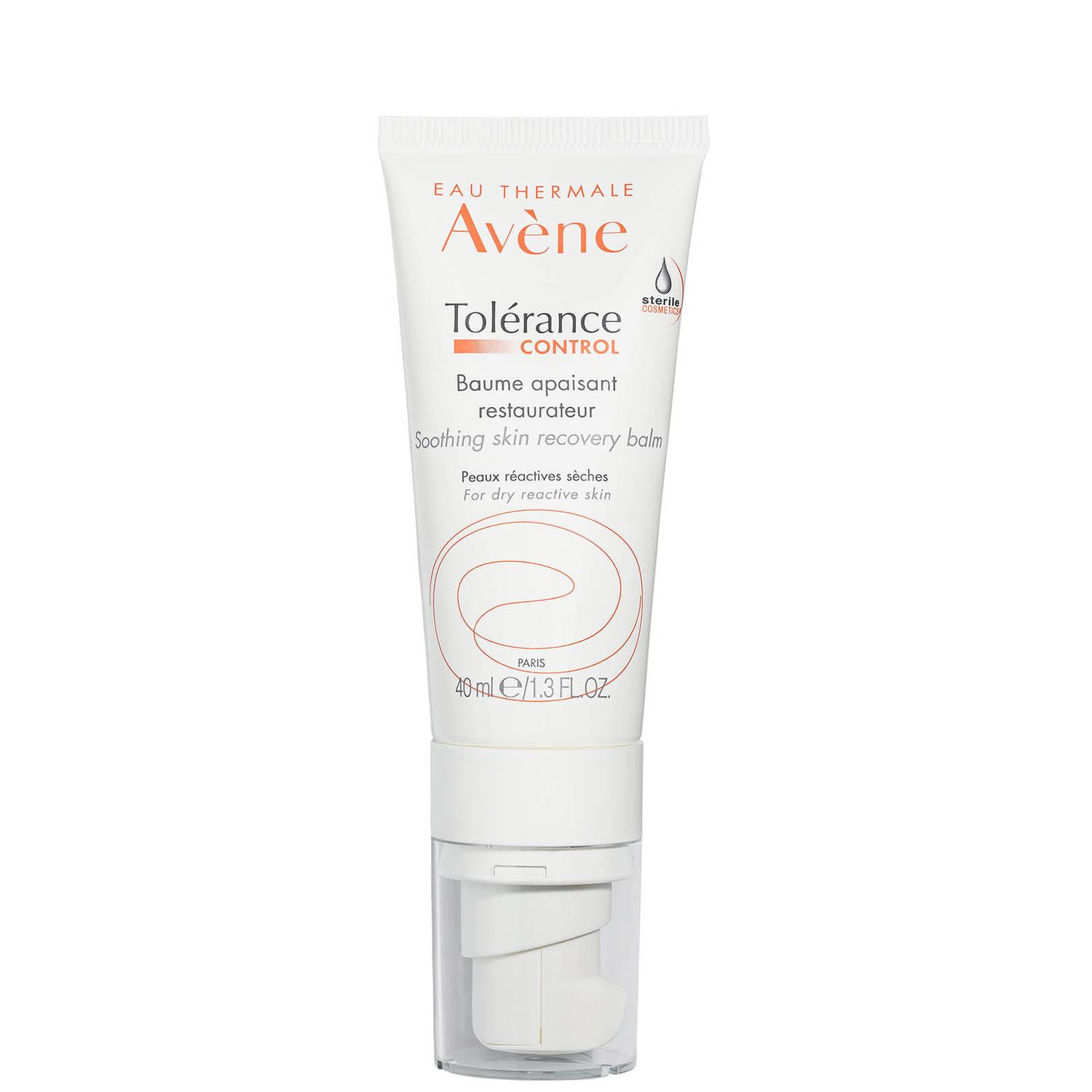
Pros: Soothing, nourishing balm texture
Cons: None
"When in doubt, I always think that simple French pharmacy solutions are great for treating redness. This mask from Avène has been recommended to me by so many different dermatologists and is something I repurchase time and time again," says Gallagher. "Use this after a day in the sun or before a hot shower or bath to reduce the feeling of heat in my skin."
Customer review: "The only products I can use on my face currently are Avène tolerance range. I like the balm for use at night as it is slightly more heavier and hydrating."
Best Foundation for Rosacea:
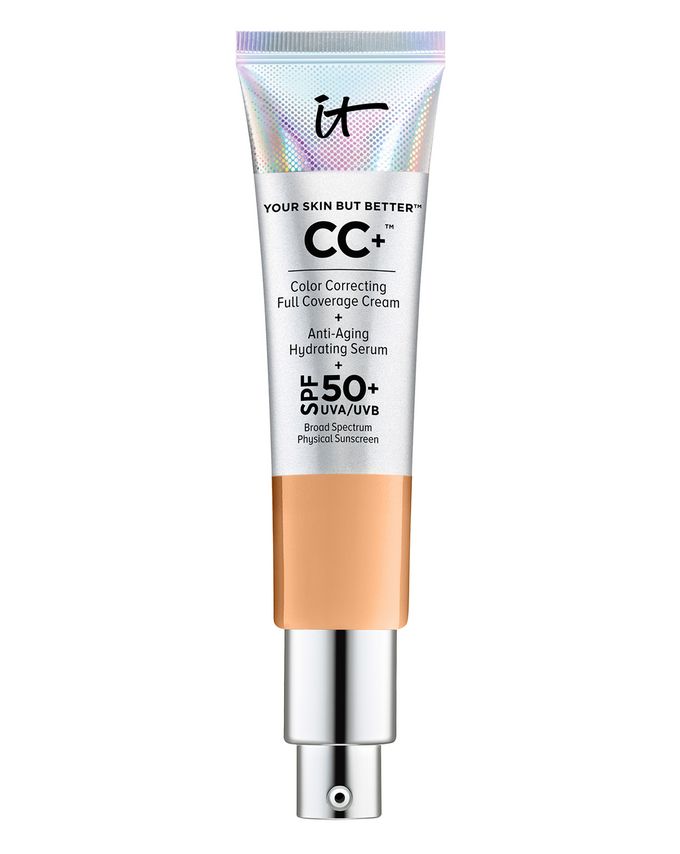
Pros: Great coverage for redness, radiant finish, hydrating
Cons:
"Full disclosure, I’m the UK and Ireland brand ambassador for It Cosmetics, but the reason they approached me for the role is that I’ve been waxing lyrical about this CC Cream for years," says Gallagher. "This offers completely full coverage and was founded by a woman who has rosacea, so it is the ultimate redness remedy. What’s more is that the finish is dewy so you barely look like you’re wearing anything (even though you’ve achieved a flawless base)."
Customer review: "Wow this is such a good foundation. At first it looks quite heavy but once blended, it feels light on the skin. It gives a natural glow that even looks good on my oily skin! A little goes a long way and it lasts all day. With the added SPF 50, I will definitely be buying again."
Best Cleansing Tool for Rosacea:
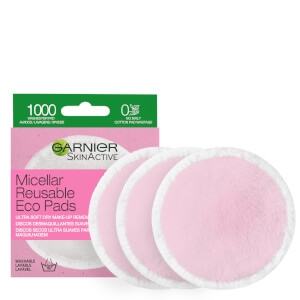
Pros: Affordable, resuable, gentle on skin
Cons: None
"Abrasion of any kind is a real struggle when you have rosacea, but when you like to wear a lot of makeup you do want to feel like you’ve thoroughly removed it," says Gallagher. "These reusable pads from Garnier are so incredibly soft. They allow you to ensure that all of your makeup is thoroughly removed without causing any unnecessary irritation to already hot and bothered skin."
Customer Review: "These are absolutely excellent for the price, you get 3 in a pack for under £5 you can’t grumble. They are so soft and really easy to clean after use and dry by morning, pink on one side and white the other not sure what the different sides do but they have certainly made my skin a lot softer when taking make up off or using with micellar water as I noticed the pads I was using were starting to hurt my eyelids and making them sore, all gone since using these. Really pleased I purchased them."

Eleanor Vousden is the beauty editor for Who What Wear UK. She was previously deputy editor at Hairdressers Journal, health writer at Woman & Home and junior beauty editor at Powder. She has also contributed to Wallpaper and Elle Collections.With a degree in fashion journalism from the London College of Fashion, she has 10 years of industry experience and has been highly commended at the BSME Talent Awards for her work on Powder and also contributed to the title winning Website of the Year at the PPA Awards.Eleanor’s journalistic focus is providing readers with honest and helpful beauty content. She has interviewed celebrity makeup artists, hairstylists and dermatologists throughout her career, as well as celebrities such as Hailey Bieber, Sarah Jessica Parker and Scarlett Johansson.
-
 This Is the Brand French Women Use to Achieve Chic, Effortless Makeup
This Is the Brand French Women Use to Achieve Chic, Effortless MakeupThey all swear by it.
By Eleanor Vousden
-
 I Hate Full-Coverage Makeup—If You're With Me, You Need to Know About This Brand
I Hate Full-Coverage Makeup—If You're With Me, You Need to Know About This BrandNatural radiance in a bottle.
By Brittany Davy
-
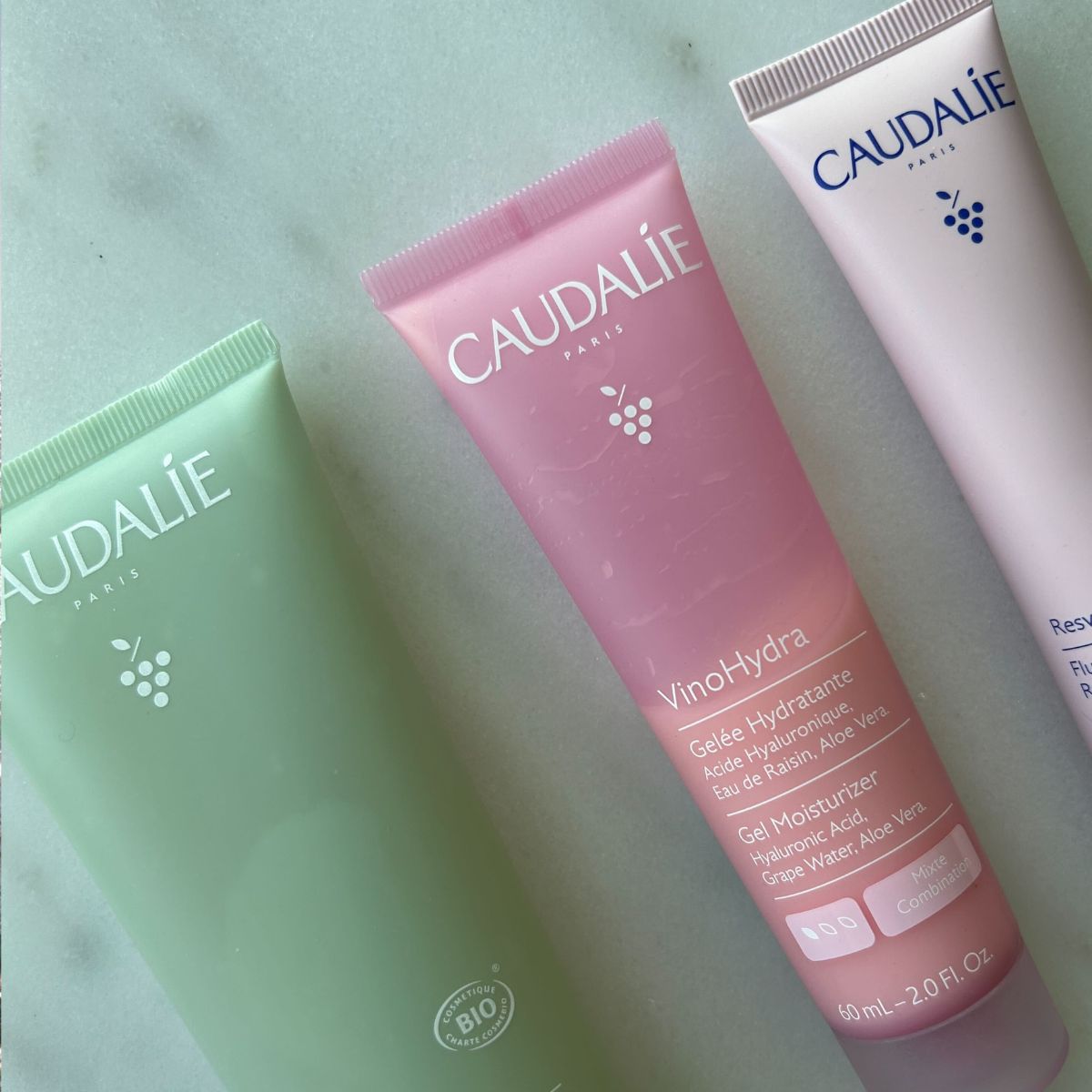 I've Tried Every French Skincare Brand Around—This Is the One Chic Parisians Genuinely Swear By
I've Tried Every French Skincare Brand Around—This Is the One Chic Parisians Genuinely Swear ByThe secret to that glow.
By Grace Lindsay
-
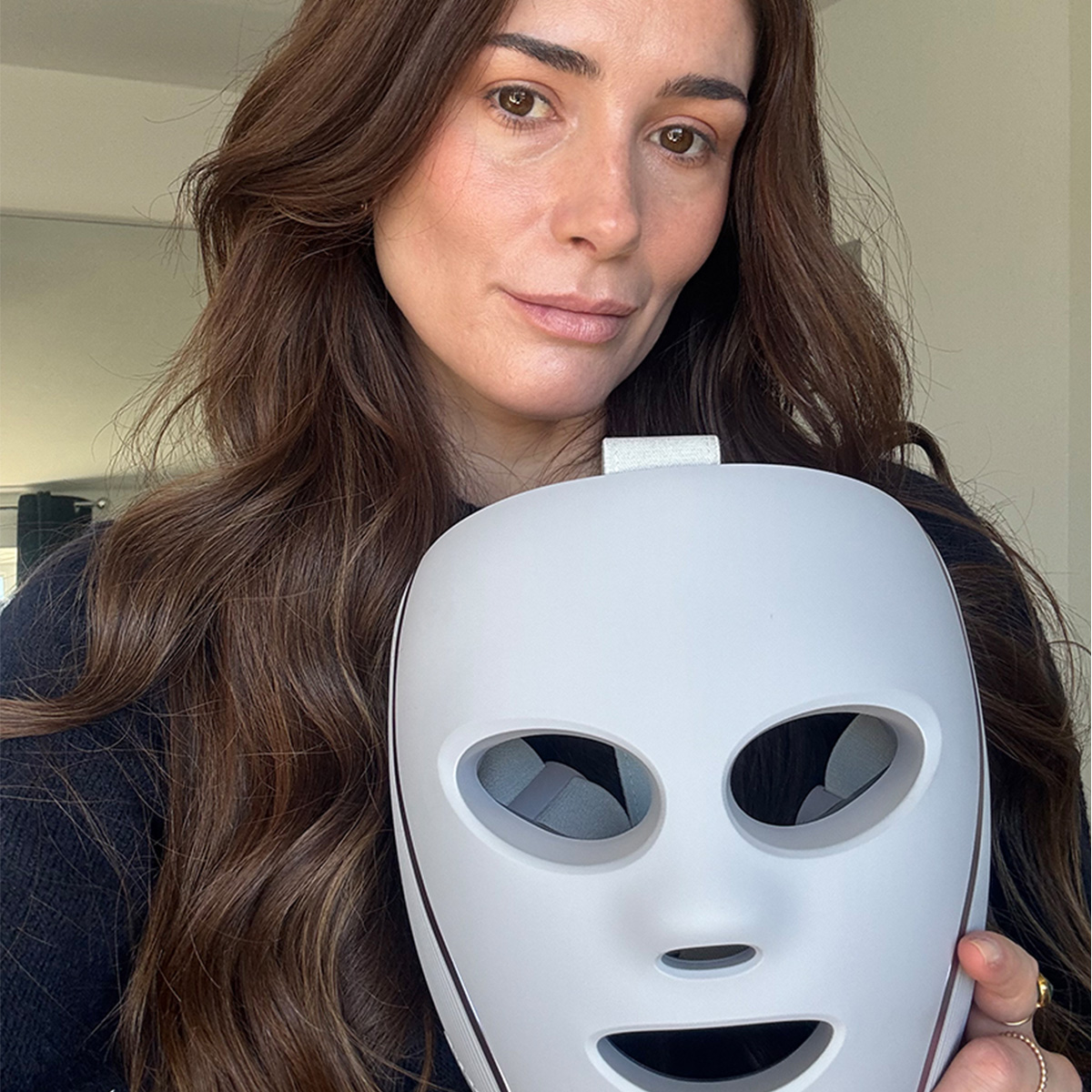 This LED Mask Simultaneously Deleted My Under-Eye Bags And Gave Me Glowing Skin
This LED Mask Simultaneously Deleted My Under-Eye Bags And Gave Me Glowing SkinAll in one month.
By Eleanor Vousden
-
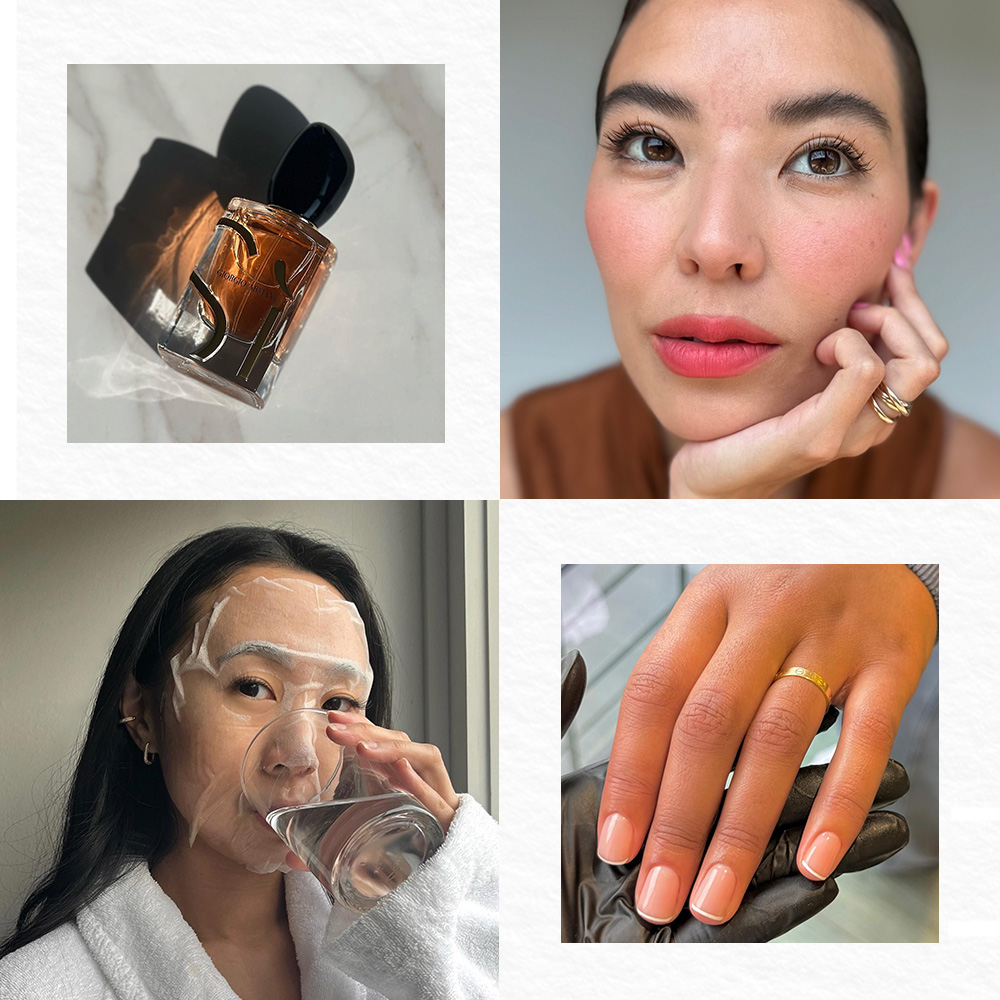 The Spring Beauty Drill: The Ultimate Routine for People Who Can't Be Bothered
The Spring Beauty Drill: The Ultimate Routine for People Who Can't Be BotheredYou'll be made up in minutes.
By Grace Lindsay
-
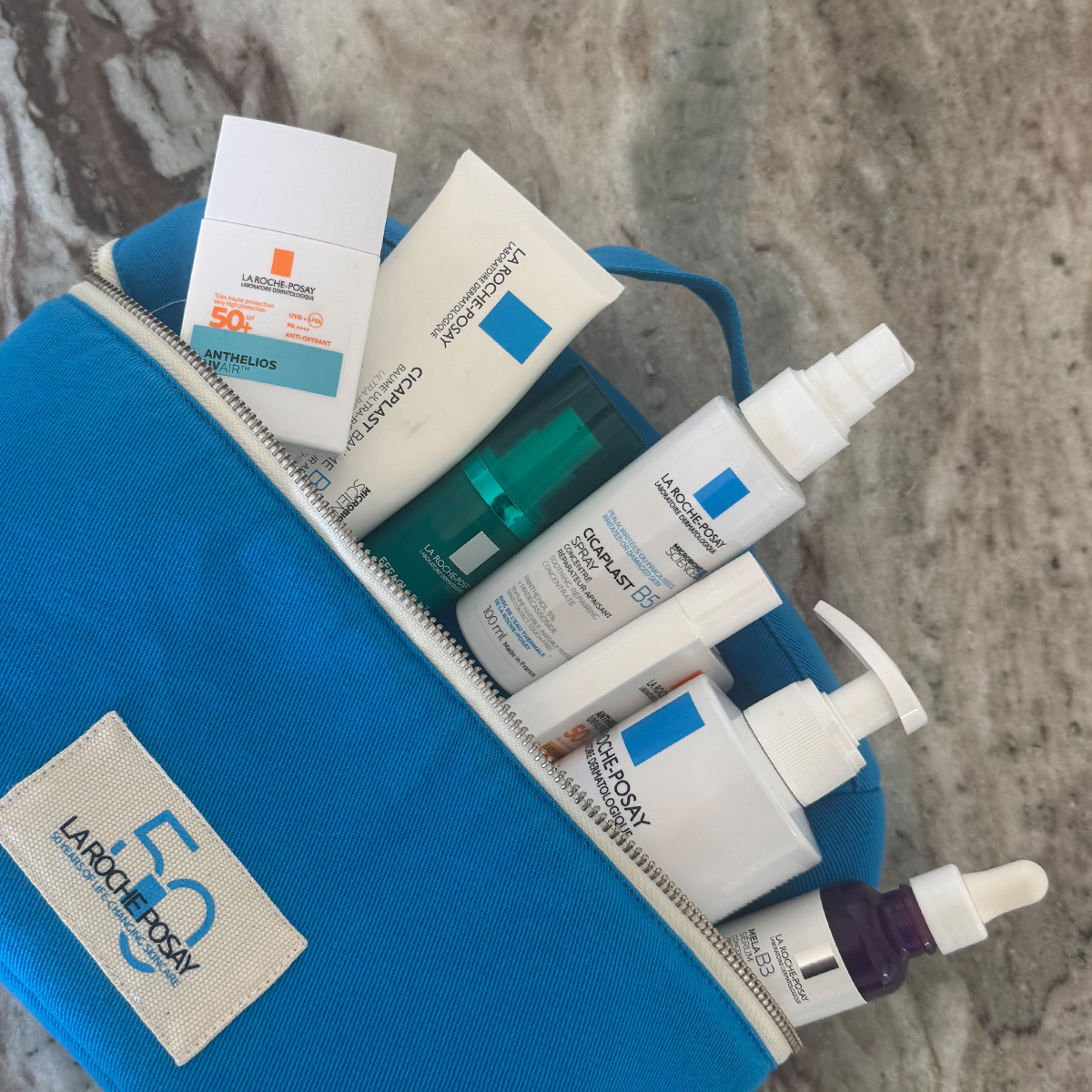 Experts and Editors Agree—This French Pharmacy Skincare Brand Is the Greatest of All Time
Experts and Editors Agree—This French Pharmacy Skincare Brand Is the Greatest of All TimeYour healthiest skin awaits.
By Eleanor Vousden
-
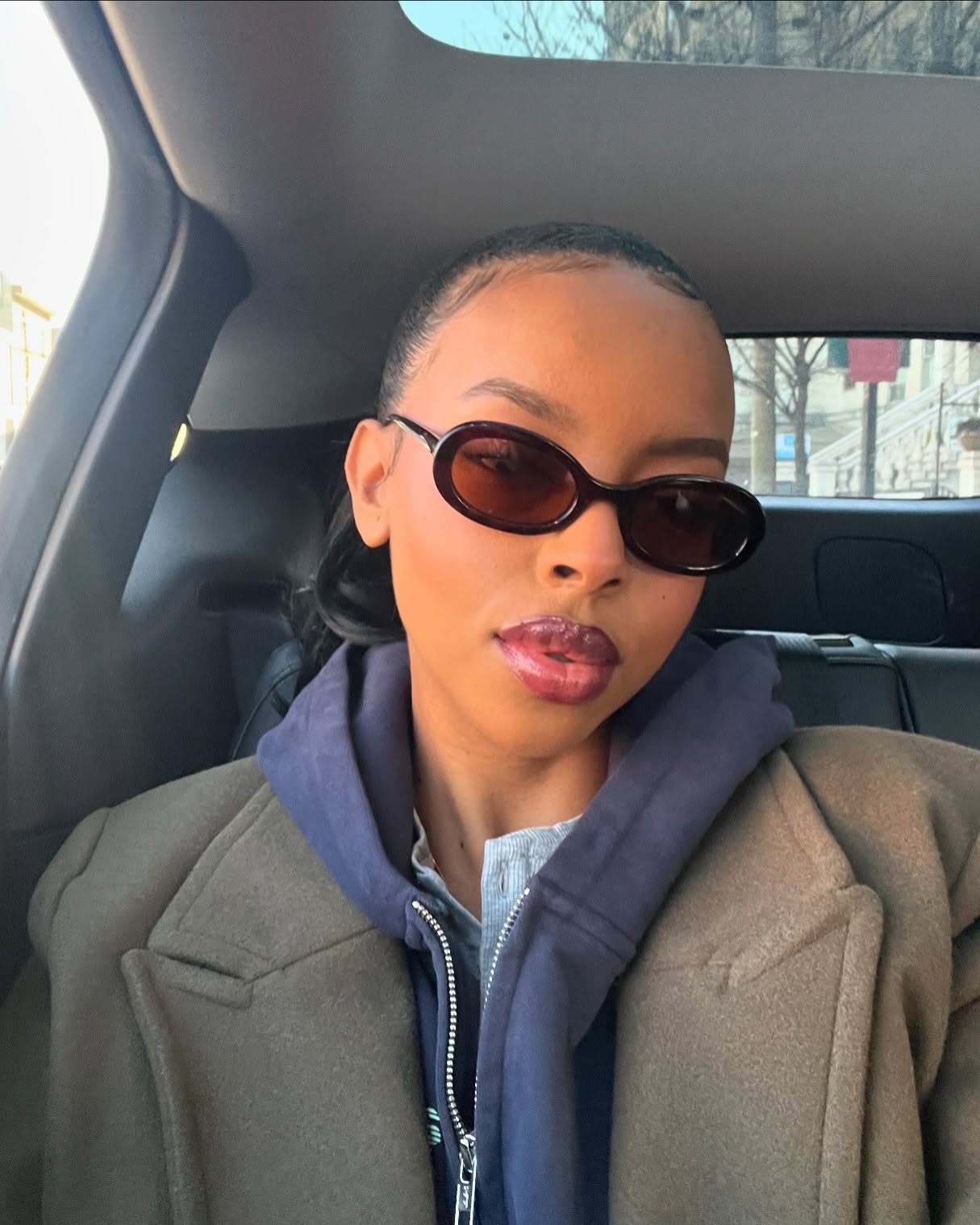 I'm A Skincare Expert: This Is the Underrated Skincare Product I Recommend for Enlarged Pores
I'm A Skincare Expert: This Is the Underrated Skincare Product I Recommend for Enlarged PoresIt makes such a difference.
By Grace Day
-
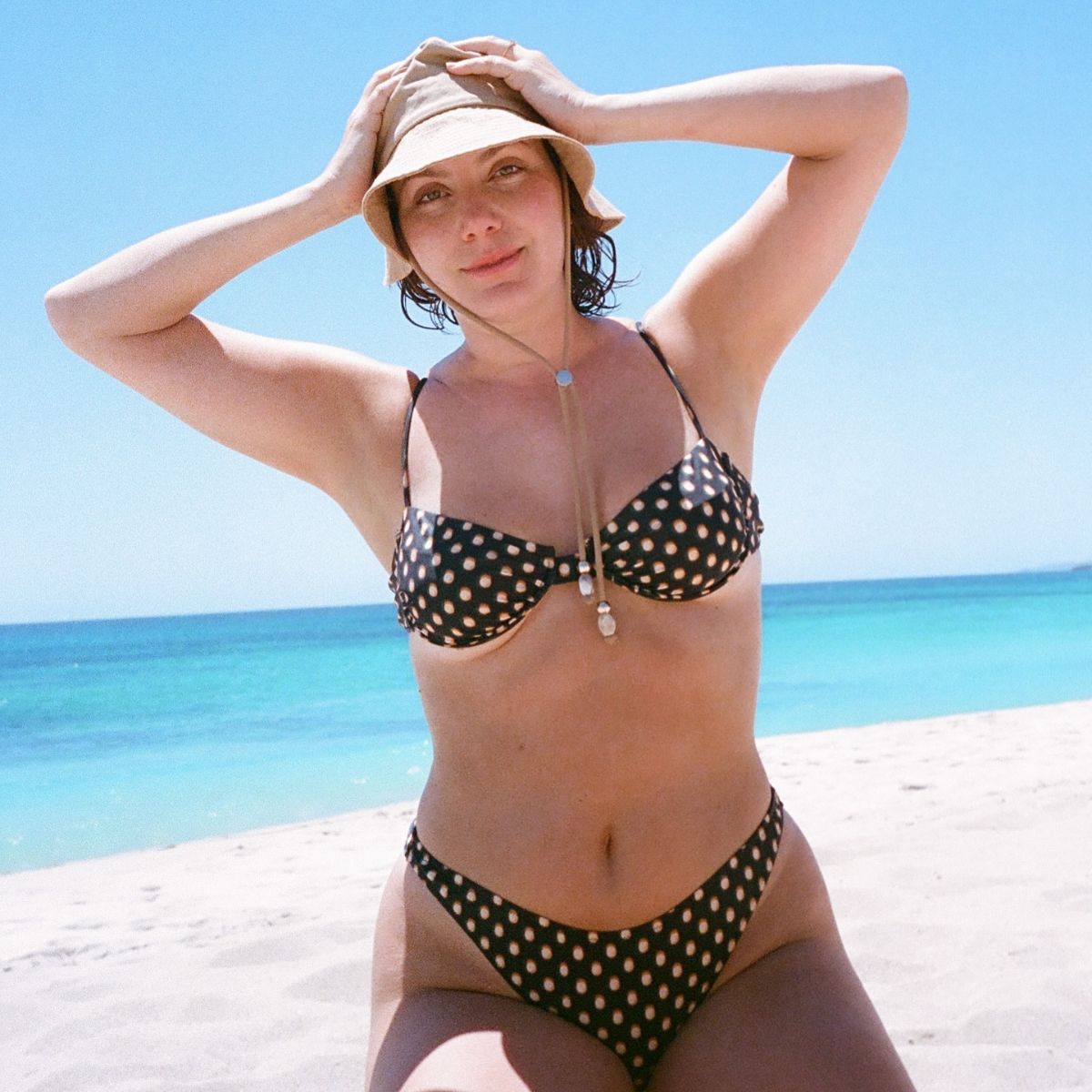 These Body Sunscreens Are So Good You'll Want to Start Applying Them Now
These Body Sunscreens Are So Good You'll Want to Start Applying Them NowReady for the sunshine.
By Grace Lindsay
